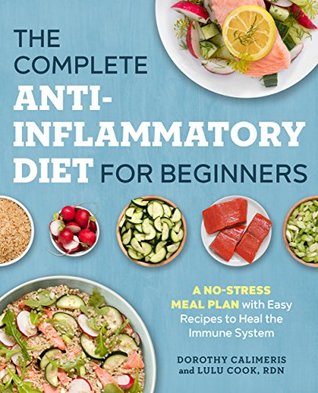More on this book
Kindle Notes & Highlights
Read between
September 12 - November 2, 2020
Berries, watermelon, apples, and pineapple in particular are proven anti-inflammatory superstars, thanks to their high levels of phytonutrients.
Citrus fruits provide high-antioxidant vitamin C, a knockout inflammation fighter. Vegetables such as onions, broccoli, and leafy greens support resistance to inflammation. Garlic and onion don’t just add pungent flavor—they’ve also been studied extensively for their immune system benefits.
Olive oil is a rich source of polyphenols, which are compounds shown to reduce indicators of inflammation, and it should be your primary cooking oil.
Fatty fish like salmon and sardines are excellent sources, as are some plant foods such as walnuts and flaxseed.
Consumption of flaxseed protects against inflammation and some cancers, but go for the ground version, so your body can absorb all that goodness. Seeds like hemp and chia are similarly helpful, as are pine nuts, which are actually nutrient-dense seeds.
Turmeric deserves special mention for its proven anti-inflammatory and neuroprotective properties. Ginger, saffron, and cinnamon are other potent flavor enhancers worth trying. Herbs such as basil, rosemary, and thyme all have inflammation-fighting compounds, and their aroma and taste elevate the meal experience.
Fermented foods such as yogurt, sauerkraut, pickles, tempeh, and kimchi are known as probiotic foods because they provide a direct infusion of healthy bacteria to your system in addition to their characteristic tang.
Prebiotics are foods that feed those good gut bacteria—sources include high-fiber vegetables, whole grains, and beans. Cooked beans like black beans, chickpeas, and lentils also double as lean, plant-based proteins.
green tea is a particularly robust source of antioxidants. Drip coffee provides fiber and is one of the biggest contributors of antioxidants to the American diet—just try to keep it sugar-free. A glass of red wine from time to time provides protective resveratrol.
AVOID ADDED SUGARS AND REFINED GRAINS FROM ANY SOURCE.
PROCESSED AND RED MEAT.
Corn, safflower, sunflower, and soy oils are high in proinflammatory omega-6s.
higher-fat dark meat and poultry with skin-on are less healthful.
Many pork products contain too much fat
and sodium to belong in an anti-inflammatory diet, but very lean pork, such as pork tenderloin, ...
This highlight has been truncated due to consecutive passage length restrictions.
NATURAL S...
This highlight has been truncated due to consecutive passage length restrictions.
Some people have sensitivities and intolerances to particular foods that are not technically allergies, as they do not involve the immune system.
Peanuts and tree nuts (walnuts, cashews, etc.) are anti-inflammatory powerhouses.


